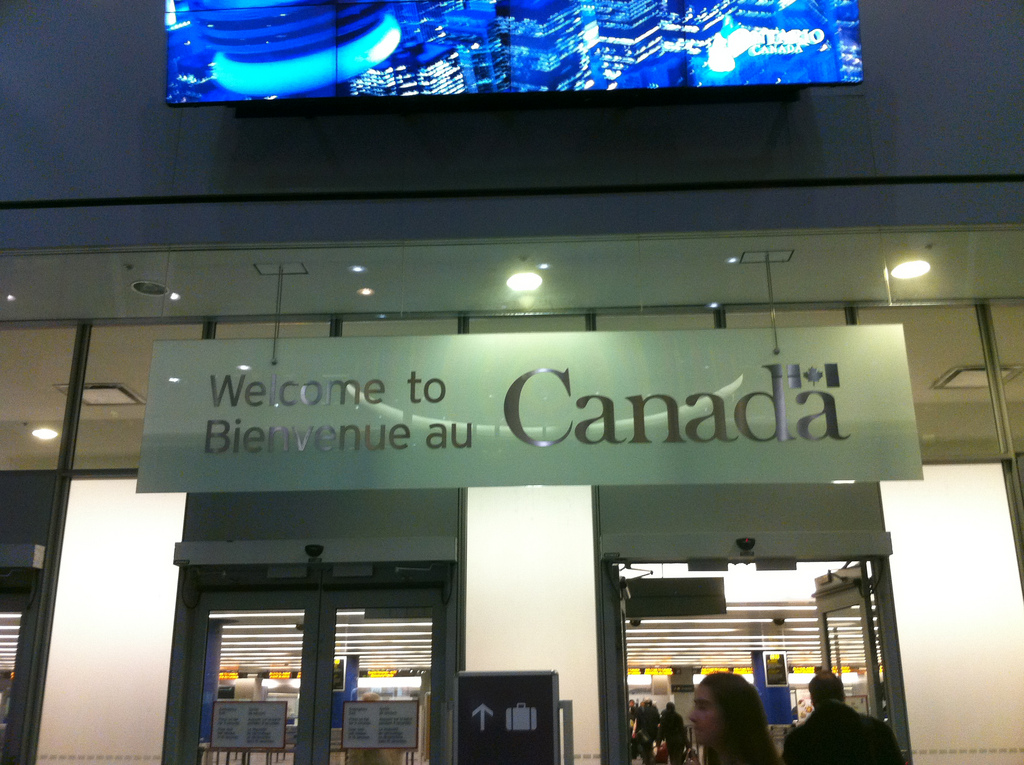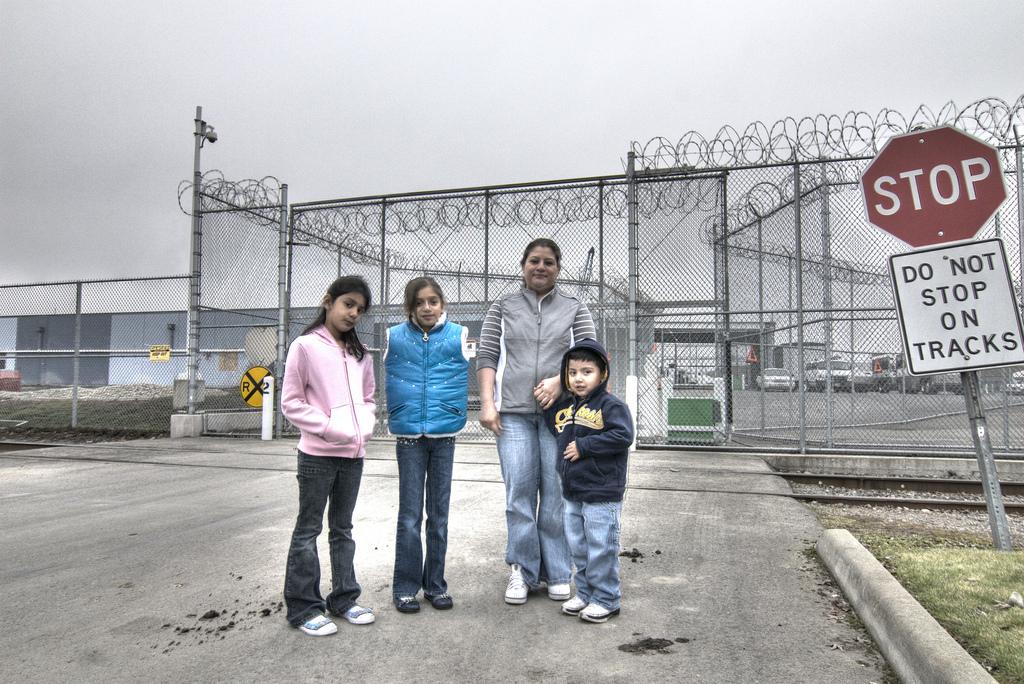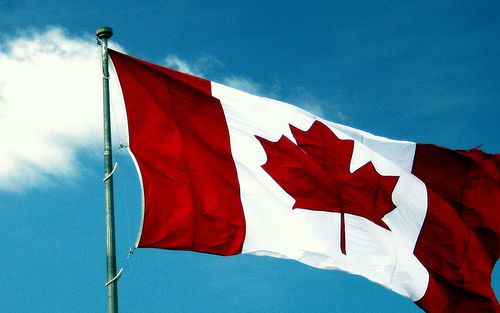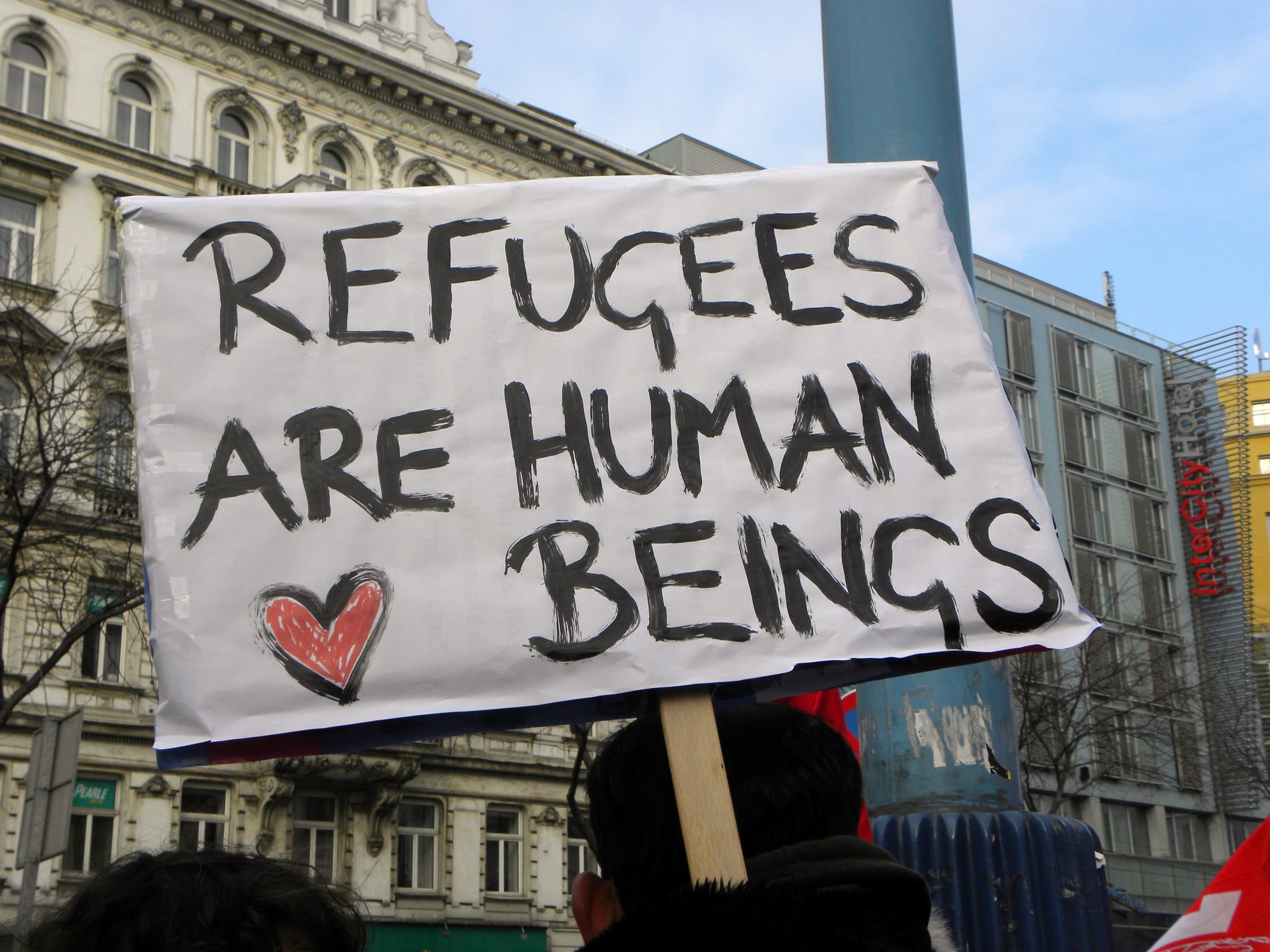The Social Benefits of Immigration in Canada & the U.S.
How These Countries Rely on Immigration for Growth
Immigration is an important part of social and economic growth in countries. For countries like the U.S. and Canada, immigration helps to balance both the aging populations and the decline in fertility rates. With more families and skilled workers coming to Canada, our economy and diverse culture can truly flourish. Although immigration in Canada is promoted, our neighbours to the south will face challenges if Trump deports immigrants who do not have valid immigration status in the U.S. This could certainly hinder social, economic, and population growth in the U.S.
According to a recent CBC News article, results from the 2016 Canadian census show that Canada’s fertility rate continues to decrease, with a current average of 1.6 children per woman. The replacement level required for the population to renew itself (without considering immigration numbers) is 2.1 children per woman, yet Canada hasn’t seen that fertility rate since 1971.
More women in Canada are choosing to have fewer children—i.e. only one or none. The goal to establish a career first and waiting to start a family is becoming more popular among Canadian women. When women are ready to start a family, they are usually older with less time left to have as many children as women did in previous generations. And once their careers are established, some may not want to put their careers on hold to start a family. The cost of raising a child also continues to increase, with the costs of child care and saving for post-secondary education holding people back from starting or growing their families.
Fertility rates are also declining around the world, however, the fertility rate in the U.S. is still higher than Canada’s. Yet, the U.S. does not have the social support that Canadians rely on for childrearing, such as free health care and paid parental leave. What the U.S. does have to help with childrearing is a high number of immigrants who work as nannies for lower wages. But Trump’s immigration policies may reduce this availability of affordable child care, in turn having a negative impact on this important support system for the U.S. workforce.
Since we welcome immigration in Canada, our country will continue to move forward socially and economically. The 2016 Canadian census also found that Canada’s population recently surpassed 35 million, with a five percent increase since the 2011 census. Immigration accounted for two-thirds of the population growth while new births only accounted for one-third. So, even though Canada’s fertility rates are dropping and the majority of the population is aging, our inclusive immigration policies are allowing our country to continue to grow and prosper. Without immigration, Canada wouldn’t be the strong country it is today.
Beware of Canadian Visa Scams
Advice From an Immigration Lawyer in Canada On How to Avoid Visa Scams
If you are applying for immigration to Canada, you need to pay attention to avoid being scammed. Visa scams, both in person and online, take advantage of uninformed individuals who wish to live and work in Canada. Always look for a qualified immigration lawyer in Canada that can give you advice and help you with your immigration application.
A recent advisory from Citizenship and Immigration Canada (CIC) warns of some fake visa and immigration lotteries being offered online by individuals making promises of guaranteed visas, work permits, jobs, and scholarships in Canada.
These scams aren’t just found online, though. A criminal ring scamming victims out of thousands of dollars by offering fake Canadian visas and travel documents was reported by the Toronto Star in India in 2009. According to the article, Indian police cracked down on a fake Canadian visa operation that may have scammed people out of more than $650,000. Scammers approached victims outside of the Canadian High Commission in New Delhi and offered visas out of a fake travel and tourism company office in Punjab. Victims of the scam were charged up to $21,000 for these fake documents that would not grant them entry to Canada.
To avoid visa scams, it’s important to understand how the Canadian immigration process works. Always refer to official Canadian immigration sources. Familiarize yourself with the IRCC website and consult a qualified immigration lawyers in Canada for assistance.
Although the guarantee of a Canadian visa sounds appealing, people who say they can guarantee a visa for you are not providing you accurate information. There are no guarantees in the Canadian immigration process. The Canadian immigration process may be rigorous, but there are steps you can take to ensure you are on the right track with your application in order to increase the chances of a positive outcome. Canada has many legitimate and easy-to-access resources to help you with the immigration process.
By doing your research, staying informed, and contacting a qualified immigration lawyer in Canada, you can avoid being a victim of costly scams.
Hundreds of Children Being Held in Immigration Detention
A study conducted by the University of Toronto's faculty of law, "Invisible Citizens: Canadian Children in Immigration Detention", has shed light on the state of hundreds of children being held in immigration detention centres across Canada, and Canadian immigration lawyers are worried.
The Immigration and Refugee Protection Act gives authorities the power to detain permanent residents or foreign nationals for several reasons, such as if there are reasonable grounds to believe they are unlikely to appear for examination, an admissibility hearing, or removal from Canada order. As well as if they are considered inadmissible or a danger to the public.
Along with the parents, authorities can also detain their children, but “only as a measure of last resort” and only if it is in the best interests of the child. Detention centres house children that are foreign nationals, permanent residents, as well as Canadian citizens; the latter can be held as de facto detainees, if it is deemed to be in their best interest to remain there with their parents. The age of the children currently being held varies greatly, from infants, to toddlers, to school-aged children.
The University of Toronto's study highlights that the conditions in the detention centres can cause children physical and psychological harm, as parents being held in immigration detention centres are not able to properly care for them in this environment. The children demonstrate a variety of symptoms including lack of interest in play, signs of depression, lack of sleep and lack of appetite, many of which subsisted even after release.
As a result, the study argues that the best interests of the children are not adequately accounted for, as required by law, in rendering decisions to detain children and that the children’s fundamental rights are being violated. Therefore, the study calls on the government to find alternatives to the detention of children, such as community housing initiatives. An approach to reduce the number of children in detention would be to allow families back into the community through community-based programs involving reporting obligations, national deposits, and guarantors.
Allowing the children back into the community while their parents remain in detention is not a viable solution for children faced with the prospect of detention; the study notes that separation from their parents has similar negative effects to being held in detention centres. Ultimately, the best interests of the children would be best served by allowing them to live in the community with their parents, but unfortunately, authorities do not consider the best interest of the child when rendering decisions to detain the parents.
The federal government has committed to revamping the legislative provisions regarding immigration detention, investigating new alternatives to child detention, and reducing the number of children being held. However, it has not yet moved forward in this regard, and critics are urging it to move faster. Critics, such as Canadian immigration lawyers, also mention the government’s current lack of transparency regarding the ongoing detention of children. They argue that the regime in place is highly detrimental to the children’s physical and psychological health, and that swift action should be taken accordingly.
Obstacles Arise in Spousal Sponsorships Following Changes to Document Requirements
A revised document checklist imposes heavy burden on co-habiting spouses wishing to complete sponsorship applications
The new application kit released on December 15, 2016, saw a number of substantive changes aimed at making the application process easier and faster. Among these changes was a revised checklist listing all the documents that applicants and their sponsors are required to submit to the IRCC with their applications. An immigration lawyer in Canada can assist applicants with these new requirements in order to avoid unnecessary delay and difficulty in the application process.
Under this new checklist, couples who are residing together must submit a certain number of specific documents as proof of their relationship. Their options include joint rental agreements, joint utilities accounts, or important documents like insurance policies showing the same address. The checklist does not seem to provide for alternatives if couples are unable to obtain any of the listed documents. Under the old checklist, couples were able to submit various types of evidence to prove the genuineness of their relationship. However, document requirements appear much more stringent following the December 2016 changes. Couples must submit the documents specified in the checklist or otherwise risk their application being returned as incomplete. An immigration lawyer in Canada can advise clients of these details ahead of time in order to obtain the necessary supporting documents and minimize the risk of their application being returned.
The problem, however, is that the realities of many genuine marriages do not conform to the requirements being imposed on couples by this new checklist. Some couples might not arrange their private affairs in a way that results in joint rental agreements or utility bills. Others might simply not have access to the documents they are required to provide for a broad range of reasons, all very much beyond their control. Their employment might not offer any benefits or they might reside in a country where Canadian sponsors as foreign nationals cannot be listed on utility accounts or rental agreements.
The revised checklist, however, does not account for such realities. Sponsorship applications that do not completely resemble the document checklist are very likely to be returned, without any recourse being available to applicants and their sponsors. Returned applications have no file numbers, while information about the decision-maker who returned the application is simply unavailable. There is no one that couples can contact to discuss their applications or address their concerns. They must instead struggle to somehow obtain all the documents the checklist necessitates prior to resubmitting or risk having their application returned for a second time.
Canadian Lawyers and Law Students Work to Abolish Safe Third Country Agreement
Lawyers and Law Students Argue the U.S. Is No Longer A Safe Country And The Canada-U.S. Agreement Is Putting The Lives Of Refugees In Danger
As more asylum seekers risk their lives crossing into Canada during the harsh winter months, Canadians are speaking up about the Canada-U.S. Safe Third Country Agreement. This agreement is the reason why many asylum seekers are crossing into Canada at unofficial borders. Refugee lawyers have been working diligently to help these asylum seekers.
If these refugees were to enter Canada at an official border, they would risk being denied entry and sent back to the U.S. The Safe Third Country Agreement states that asylum seekers must make refugee claims in the first safe country they arrive in. But the safety of immigrants in the U.S. is being questioned now that Trump’s anti-immigration ban has been introduced. Refugee lawyers and law students in Canada are collaborating to abolish the Safe Third Country Agreement to ensure the safety of asylum seekers and to recognize that the U.S. is no longer a safe country for refugees.
According to a CBC News report, more than 200 lawyers and 22 law schools across Canada took part in a “research-a-thon” in February to gather evidence against the Safe Third Party Agreement. Refugee lawyers and law students compiled research findings from case laws, policies, and journal articles to share with refugee advocate groups who are fighting for Canada to abolish the controversial agreement, claiming the U.S. is no longer a safe country.
Since U.S. President Donald Trump introduced the ban on Syrian refugees and immigrants from seven Muslim-majority countries, more asylum seekers have been risking their lives to cross into Canada because they no longer feel safe in the U.S.
They either fear deportation to their home countries, where they face possible violence, persecution, and death, or they fear the possible dangers of living in a country where immigrants, especially Muslim immigrants, are treated as the enemy by the country’s leader.
The Canadian government needs to address the safety of asylum seekers who wish to enter Canada, instead of making the arduous journey across borders their only option for a chance at a safer and better life. By eliminating the Safe Third Country Agreement, asylum seekers will have a safer experience applying for refugee status in Canada, as they won’t have to travel long distances in dangerous weather conditions to cross unofficial borders.
Canada has a reputation for welcoming refugees, so the government should also ensure their safety when they are trying so desperately to make it to the U.S.-Canada border.





